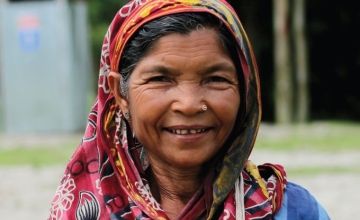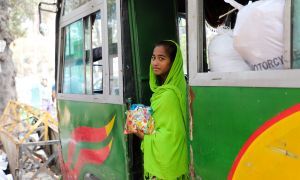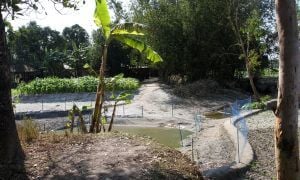
Read our 2023 annual report

Knowledge Hub
Supporting Flood Forecast-based Action and Learning in Bangladesh
The project 'Supporting Flood Forecast-based Action and Learning in Bangladesh' (SUFAL) is implemented in a consortium led by CARE with Concern Worldwide, Islamic Relief Bangladesh, Oxford Policy Management, technical partner Regional Integrated Multi-Hazard Early Warning System for Africa and Asia (RIMES) and financially supported by ECHO and Aktion Deutschland Hilft (ADH).

SUFAL has been active since September 2019 and is currently in its second phase of implementation since July 2022. The project focuses on building capacity of government, local disaster management committees (DMCs) and communities; and also generating evidence and learning to strengthen governance systems and increase financing for Anticipatory Action.
In its first phase, SUFAL worked with Government of Bangladesh’s Department of Disaster Management (DDM), Disaster Management Committees (DMCs) at district and local levels, and the Flood Forecasting and Warning Center (FFWC) to set triggers and identify appropriate early actions to reduce potential impacts of anticipated monsoon floods on vulnerable communities along the Jamuna River. SUFAL Consortium which also included Islamic Relief Bangladesh and Assistance for Social Organization & Development (ASOD) worked closely with DMCs to implement forecast-based early actions (FbA) in the 2020 monsoon season, and shared the learning with the Taskforce on Forecast Based Financing/Action (FbF/A) which is responsible for development of strategies and protocols for FbA at the national level.
In the current second phase, SUFAL Consortium continues to work with the Government of Bangladesh to develop a process for Impact-based Forecasting, strengthen access to localized flood early warning with extended lead times, explore and test wider range of early actions, examine how anticipatory actions can relate to Shock Responsive Social Protection (SRSP), and support the development of protocols and guidelines for financing with the Taskforce on FbF/A and humanitarian actors.
This case study first gives an explanation of Forecast-based Early Action and the Community-based approach to FbA, and then highlights examples of resilient communities acting early to mitigate the effects of the 2020-21 monsoon floods in Bangladesh.
Download the case study
This document covers humanitarian aid activities implemented with the financial assistance of the European Union, the European Civil Protection and Humanitarian Aid Operations Department (ECHO). The views expressed herein should not be taken, in any way, to reflect the official opinion of the European Union, and the European Commission is not responsible for any use that may be made of the information it contains.




